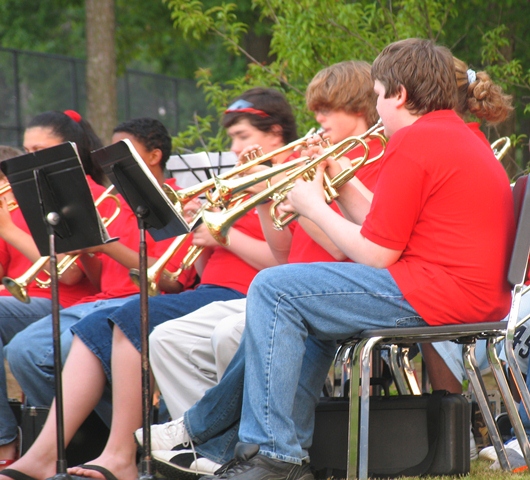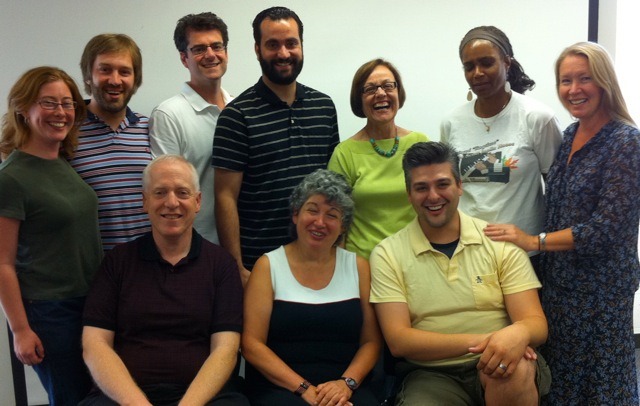
Professor Joseph Shively is an expert in the important field of Music Advocacy and he is offering an online graduate class on the topic this summer. It is part of the schedule of music education summer workshops designed specifically for graduate students who are also working teachers. In a two-week burst of intensive study, a teacher can complete the requirements for a two-credit class.
Some classes are fundamental and run every year, like “Music Curriculum Design and Assessment,” which is taught by department chair Jackie Wiggins. Others rotate regularly through a two or three year cycle and the timing of the advocacy class is opportune.
Professor Deborah Blair remains very optimistic about the future of music education but she notes that there are “changes in the market.” For years her mantra has been “Nothing builds support like success,” reflecting her belief that a truly successful program, focused on more than just the end product, will
speak for itself to parents and administrators. But facing the reality of the current economic climate requires an acknowledgment that success is sometimes no longer enough.
“We have to be advocates for our profession and we strive to enable our teachers to be articulate about the value of our profession and the arts, both in their districts and throughout the state,” says Professor Blair. But the fact remains that changing practices in funding have led to job restructuring, leaving some teachers required to teach outside their specialization.
To assist with that issue the graduate program is offering two new workshops this year. Joe Shively is teaching “Teaching for Musical Understanding in Beginning Instrumental Music,” and Deborah Blair is teaching “Choral Methods for Instrumental Teachers.” Both are aimed at teachers facing the challenge of a new area of expertise to master.
Also on the schedule are classes that deal with theory or research, while others are focused on classroom practice. But underpinning all is an interactive, constructivist approach to teaching and learning music. From a constructivist perspective, music learners need to actively engage with and explore music and musical ideas, interacting with peers, formulating their own understanding of their experiences and processes.
Deborah Blair says the music education faculty takes a similar approach to the postgraduate program they offer for working teachers. “We seek to enable teacher growth throughout the whole program,” she says.
And students recognize that commitment. Amber Cooper, who currently teaches in the Birmingham schools says, “The MTD department at OU prepared me as much as possible in my undergraduate program to be a quality music educator. However, after experiencing the field a little, I realized there was a lot more to learn. Thankfully, OU offers the summer graduate workshops. These are opportunities to work with MTD's exceptional faculty and learn more specialized information in a convenient time-frame."
This year the “specialized information” includes such diverse offerings as, “Enriching Students’ Listening Experiences Through Mapping,” “Improving Your Clarinet Section,” and “African Music in the Classroom.”
As always in Michigan, summer is just too short! But the MTD summer workshops are especially configured to allow even busy music teachers, who carry a heavy load of after school and weekend commitments, and perhaps even have a summer band camp to run, to begin or continue their postgraduate education. Find full details:
Music Education Summer Workshops.
 Photo: Doctoral students posing
with Liora Bresler, Professor of Education, University of
Illinois at Urbana-Champaign (center front row). Professor Bresler is a world-renowned expert in qualitative research in music education. She taught a course
for these 9 students, summer 2010, a transformational experience for them all.
Photo: Doctoral students posing
with Liora Bresler, Professor of Education, University of
Illinois at Urbana-Champaign (center front row). Professor Bresler is a world-renowned expert in qualitative research in music education. She taught a course
for these 9 students, summer 2010, a transformational experience for them all.


